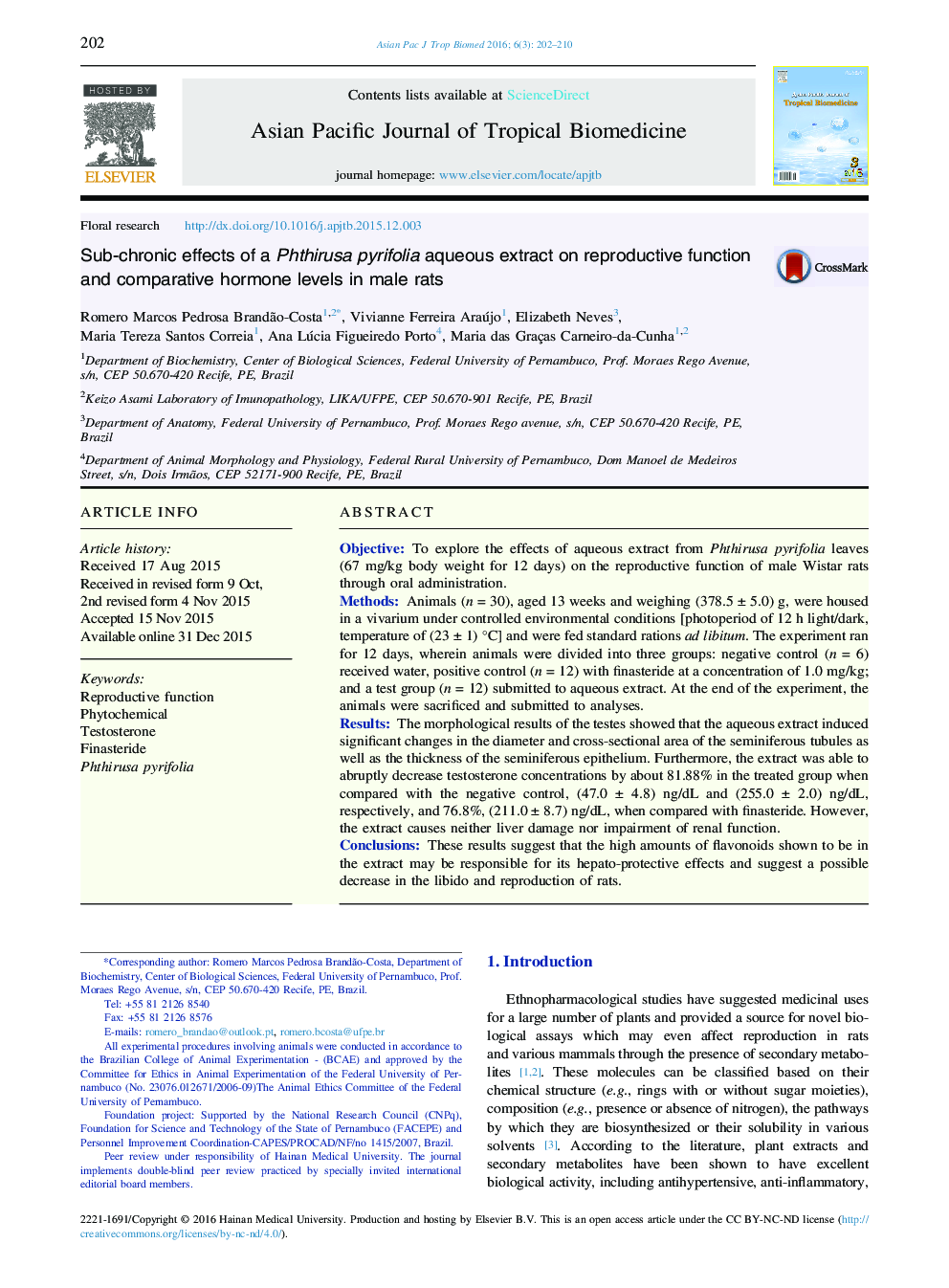| Article ID | Journal | Published Year | Pages | File Type |
|---|---|---|---|---|
| 2032328 | Asian Pacific Journal of Tropical Biomedicine | 2016 | 9 Pages |
ObjectiveTo explore the effects of aqueous extract from Phthirusa pyrifolia leaves (67 mg/kg body weight for 12 days) on the reproductive function of male Wistar rats through oral administration.MethodsAnimals (n = 30), aged 13 weeks and weighing (378.5 ± 5.0) g, were housed in a vivarium under controlled environmental conditions [photoperiod of 12 h light/dark, temperature of (23 ± 1) °C] and were fed standard rations ad libitum. The experiment ran for 12 days, wherein animals were divided into three groups: negative control (n = 6) received water, positive control (n = 12) with finasteride at a concentration of 1.0 mg/kg; and a test group (n = 12) submitted to aqueous extract. At the end of the experiment, the animals were sacrificed and submitted to analyses.ResultsThe morphological results of the testes showed that the aqueous extract induced significant changes in the diameter and cross-sectional area of the seminiferous tubules as well as the thickness of the seminiferous epithelium. Furthermore, the extract was able to abruptly decrease testosterone concentrations by about 81.88% in the treated group when compared with the negative control, (47.0 ± 4.8) ng/dL and (255.0 ± 2.0) ng/dL, respectively, and 76.8%, (211.0 ± 8.7) ng/dL, when compared with finasteride. However, the extract causes neither liver damage nor impairment of renal function.ConclusionsThese results suggest that the high amounts of flavonoids shown to be in the extract may be responsible for its hepato-protective effects and suggest a possible decrease in the libido and reproduction of rats.
